-
KOSPI 2577.27 -2.21 -0.09%
-
KOSDAQ 722.52 -7.07 -0.97%
-
KOSPI200 341.49 +0.02 +0.01%
-
USD/KRW 1396 -2.00 0.14%
Hyundai Motor vows record investment of $16.7 bn in South Korea
Automobiles
Hyundai Motor vows record investment of $16.7 bn in South Korea
The S.Korean auto giant will spend nearly half of the investments on R&D to develop future mobility technologies
By
Jan 09, 2025 (Gmt+09:00)
3
Min read
News+
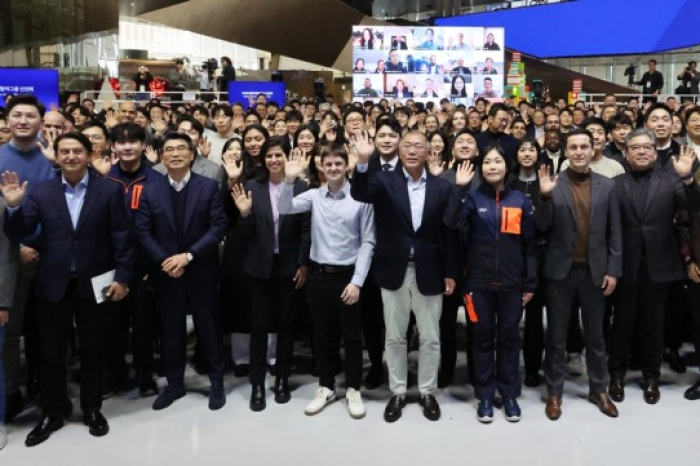
Hyundai Motor Group will invest 24.3 trillion won ($16.7 billion) this year in South Korea, the largest-ever annual investment in its home country, to advance its future mobility technologies amid growing uncertainties in the global economy and auto industry.
Korea’s biggest auto group, also the parent of Hyundai Motor Co. and Kia Corp., announced on Thursday that it has earmarked 24.3 trillion won for investment in Korea in 2025, up 19% from the previous year.
It has made its record-high domestic investment in the face of headwinds from global economic uncertainty, geopolitical risks and local political turmoil.
Its investment announcement came a few days after Hyundai Motor Group Executive Chairman Chung Euisun urged executives and employees to guard against pessimism amid a “perfect storm” of economic crises.
Of the total amount, 11.5 trillion won will be spent on research and development for next-generation mobility technologies including electrification, software-defined vehicles (SDVs) and hydrogen.
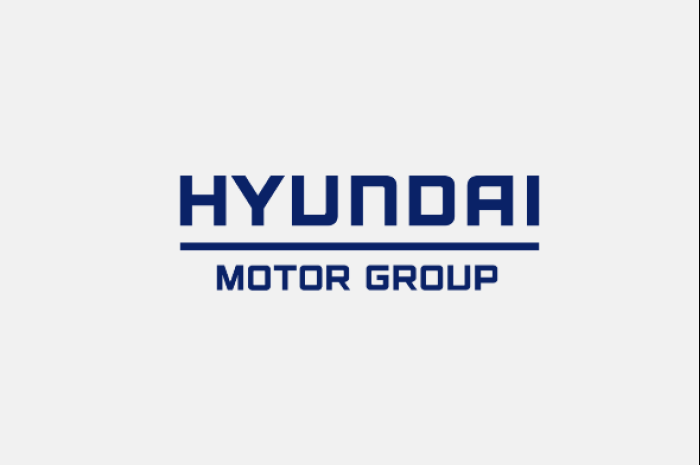
The company will also use 12 trillion won in ordinary investments to expand electric vehicle production lines and build related infrastructure and about 800 billion won in strategic investments for autonomous driving and artificial intelligence technologies.
DIVERSIFICATION
The Korean auto giant said it will deal with the ongoing EV chasm by releasing diverse hybrid models backed by improved performance and fuel efficiency and developing the next-generation hybrid system and extended-range electrified vehicles (EREVs).
This does not mean that it is backing down from its EV ambitions. Rather, it will continue to develop new EV models to accelerate the electrification of cars.
Hyundai Motor plans to release 21 EV models, covering a full lineup from economy to luxury and high-performance vehicles, by 2030 while its sibling Kia will build a full EV lineup of 15 models, including purpose-built vehicles (PBVs), by 2027.
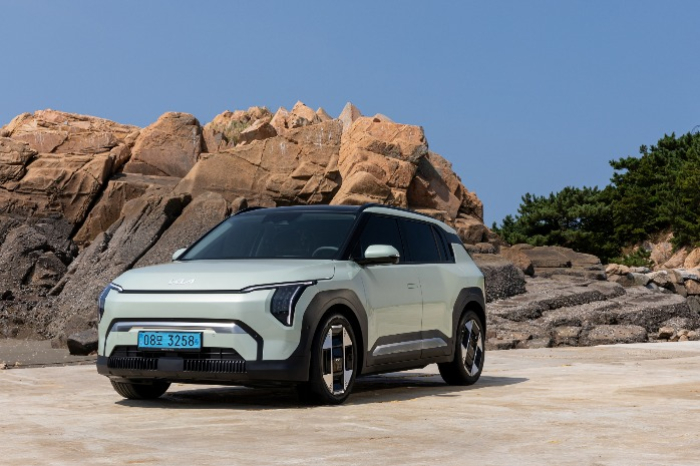
It will also develop its proprietary SDV software to complete its SDV pace car project by 2026 and implement it in mass-produced cars.
SDVs, often called smartphones on wheels, enable constant and seamless upgrades of a car’s functions through an over-the-air system throughout the car’s lifetime.
Last year, Hyundai said it eventually aims to turn all its vehicles into SDVs.
With this year’s investment, the company will also accelerate business diversification by developing new mobility devices and bolstering the robotics business.
EV PRODUCTION LINE ADDITIONS IN KOREA
The auto group plans to open Kia’s new EV-dedicated manufacturing plant in Hwaseong, near the capital Seoul, in the latter half of this year. PBV EVs are expected to be manufactured at this new plant.
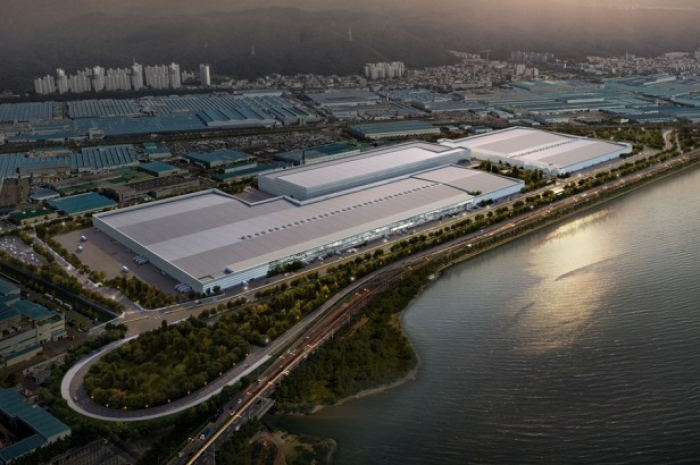
This will be Kia’s second EV-dedicated plant in Korea after it opened its EV plant in Gwangmyeong, dubbed the EVO Plant, with an annual capacity of 150,000 units in 2024.
Its bigger sibling Hyundai Motor is currently building its own EV plant in Ulsan to produce new EV models, including a large-size electrified sport utility vehicle model, with an aim to kick off operations in the first half of 2026.
In March 2024, Hyundai Motor Group announced a three-year investment plan to spend 68 trillion won from 2024 to 2026 to become the leader in electrification, SDVs and future mobility.
Hyundai Motor shares ended down 0.2% at 213,000 won on Thursday, while Kia shares rose 2.3% to close at 103,300 won.
Write to Jae-Fu Kim at hu@hankyung.com
Sookyung Seo edited this article.
More To Read
-
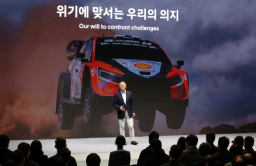 Leadership & ManagementHyundai's Chung urges guarding against pessimism in ‘perfect storm’
Leadership & ManagementHyundai's Chung urges guarding against pessimism in ‘perfect storm’Jan 06, 2025 (Gmt+09:00)
-
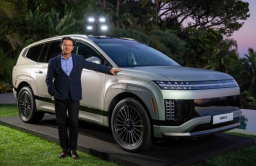 Leadership & ManagementHyundai’s José Muñoz sees new Trump policy, China's rise as opportunity
Leadership & ManagementHyundai’s José Muñoz sees new Trump policy, China's rise as opportunityNov 25, 2024 (Gmt+09:00)
-
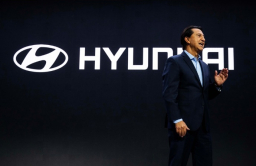 Business & PoliticsHyundai's new CEO Munoz vows to proactively respond to Trump policy
Business & PoliticsHyundai's new CEO Munoz vows to proactively respond to Trump policyNov 22, 2024 (Gmt+09:00)
-
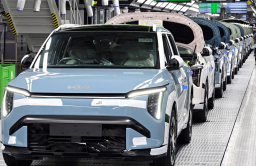 Electric vehiclesKia to mass-produce EVs at Hyundai Motor Group’s 1st dedicated plant
Electric vehiclesKia to mass-produce EVs at Hyundai Motor Group’s 1st dedicated plantSep 27, 2024 (Gmt+09:00)
-
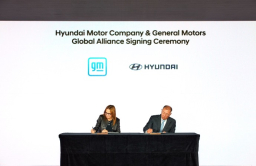 AutomobilesHyundai, GM deepen ties to jointly develop cars
AutomobilesHyundai, GM deepen ties to jointly develop carsSep 12, 2024 (Gmt+09:00)
-
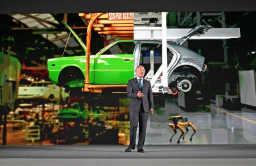 Corporate strategyHyundai Motor aims for next takeoff with $51 billion investment
Corporate strategyHyundai Motor aims for next takeoff with $51 billion investmentMar 27, 2024 (Gmt+09:00)


